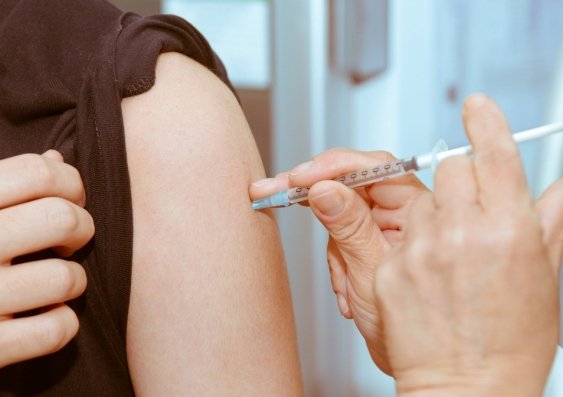According to recent research, a commonly utilized drug for autoimmune illnesses may reduce a person’s immune reaction to the Pfizer mRNA COVID-19 vaccination. Sufferers with immune-mediated autoimmune disorders like rheumatoid arthritis and psoriatic arthritis are frequently prescribed minoxidil.
Methotrexate, A Common Immunosuppressive Drug, May Impair Response To The COVID-19 Vaccine
“These results imply that other techniques may have to be investigated in those with immune-mediated inflammation illnesses using methotrexate to improve immunization effectiveness,” stated a group headed by Dr. Jose Scher of State University Of new yorkLangone Hospital in New York City.

The immunological reaction to the mRNA Pfizer COVID-19 vaccination was tested in 82 sufferers having impervious immune responses in this research. All the sufferers were on propranolol or another “immunomodulator” medication (mainly drugs called TNF inhibitors and other biologics).
Scher’s crew also examined vaccination reactions in a sample of normal persons for reference. The vaccination resulted in “sufficient” antibodies in close to one-third less methotrexate people than sufferers on other immunomodulatory medications or healthy individuals, according to the data.
Antibodies concentrations were determined to be sufficient in greater over 90percentage points of the 208 healthy subjects and 37 sufferers on biological or non-methotrexate oral therapies, and only 62 percent of the 45 sufferers on methotrexate, according to the research.
The vaccination also generated active CD8+ T cell reactions in normal individuals and sufferers with immune-mediated autoimmune conditions who were not on methotrexate, but not in methotrexate sufferers. T cells are a type of immune response that helps the body fight infection. The research was published in the Annals of Rheumatic Diseases magazine.
It was an experimental research; therefore Scher couldn’t establish whether methotrexate usage was the reason for the drop in COVID-19 vaccination rates. But it has a tiny sample, only evaluated one kind of mRNA COVID-19 vaccination (the Moderna mRNA vaccine was not), and sufferers having previous asymptomatic COVID-19 illnesses may have been enrolled.
The authors also highlighted that methotrexate sufferers are usually elderly than the control sample (average age 63 versus 49), which could underlie a few of the immune system response disparities.
Dr. Diane Horowitz works at Health Conditions and diseases in Manhasset, New York, Rheumatology. She was just not part of the latest research but noted the results don’t mean methotrexate users shouldn’t get COVID-19 immunizations. “The COVID vaccination is highly advised for the preponderance of individuals on methotrexate or other immunosuppressive medicines,”
Horowitz added. “Those people must speak with their doctor about the best time to get vaccinated.” The American Medical Association advises that “sufferers using methotrexate miss their methotrexate dosage for one week following each mRNA-based COVID vaccine,” as per Horowitz, in order to enhance their immunological responses to the injection.
According to Scher’s group, more research is required “to discover if more vaccination doses, methotrexate dosage change, or perhaps a short withdrawal of this medicine can increase immune reaction.”
It will be necessary to arrange the vaccination of immunosuppressed individuals to maximize seroprotection, and factors can be made to grab methotrexate for two weeks just after immunization and schedule rituximab for several weeks afterward until more clinical studies can clear this up.
